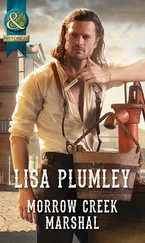The prudent tactic was obvious: unlock the cats, free the chains, hard right rudder, full speed ahead.
But Anthony hadn’t been hired to play it safe. He’d been hired to bring God north, and while he didn’t relish the thought of presiding over the Valparaíso’s second collision in two years, either this damn rig worked or it didn’t. “Marbles, eighty rpm’s!”
“Eighty?”
“Eighty!”
“Eighty!” said the mate.
“Speed?”
“Nine knots!”
Nine, good: faster, surely, than the oncoming corpse. He studied the chains. No slack! No slack, and the ship was moving! “Quartermaster, ten degrees left rudder!” Lifting the binoculars, laughing into the wind, the captain studied His vast shining brow. “Course three-five-zero!”
“Three-five-zero!” said Weisinger.
Anthony pivoted toward the bow. “All engines ahead full!” he shouted to Rafferty, and they were off — off like some grandiose water-skiing act, off like some demented rendition of Achilles dragging Hector around the walls of Troy, off like some absurdist advertisement for Boys Town, USA, the angelic youngster bearing his crippled brother on his back (He ain’t heavy, Father, He’s my Creator) — off, towing Jehovah.
AS THE BURDENED Valparaíso crawled north through the Gulf of Guinea, Cassie Fowler realized that her desire to see their cargo destroyed was more complicated than she’d initially supposed. Yes, this body threatened to further empower the patriarchy. Yes, it was a terrible blow to reason. But something else was going on, something a bit more personal. If her dear Oliver could actually bring off such a spectacular feat, successfully applying his brains and wealth toward God’s obliteration, he would emerge in her eyes as a hero, second only to Charles Darwin. She might even, after all these years, acquiesce to Oliver’s longstanding proposal of marriage.
On July 14, at 0900, Cassie went to the radio shack and made her pitch to Lianne “Sparks” Bliss. They must send Oliver a secret fax. Immediate and total sabotage was required. The future of feminism hung in the balance.
Not that she didn’t love Oliver as he was: a sweet man, a committed atheist, and probably the best president the Central Park West Enlightenment League had ever had — yet also, Cassie felt, a castaway like herself, shipwrecked on the shores of his own essential uselessness, not just a Sunday painter but a Sunday human being. How better for a person to acquire some self-respect than to save Western Civilization from a return to misogynist theocracy?
“The future of feminism?” said Lianne, nervously fingering her crystal pendant. “Are you serious?”
“Deadly,” said Cassie.
“Yeah? Well, nobody except Father Thomas is allowed to contact the outside world. Captain’s orders.”
“Lianne, this damn body is exactly what the patriarchy has been waiting for — evidence that the world was created by the male chauvinist bully of the Old Testament.”
“Okay, but even if we did send a message, would your skeptic friends believe you?”
“Of course my skeptic friends wouldn’t believe me. They’re skeptics. They’d have to fly over, take pictures, argue among themselves…”
“Forget it, sweetie. I could get booted out of the Merchant Marine for something like this.”
“The future of feminism, Lianne…”
“I said forget it.”
The next morning, Cassie tried again.
“Century after century of phallocratic oppression, and finally women are gaining some ground. And now — bang — it’s back to square one.”
“Aren’t you overreacting a bit? We’re gonna bury the thing, not put it on fucking Oprah.”
“Yeah, but what’s to prevent somebody from happening on the tomb in a year or two and spilling the beans?”
“Father Thomas talked to an angel,” said Lianne defensively. “There’s obviously a cosmic necessity behind this voyage.”
“There’s a cosmic necessity behind feminism, too.”
“We shouldn’t go tampering with the cosmos, friend. We absolutely shouldn’t.”
For the rest of the day, Cassie made a point of avoiding Lianne. She had presented her case fully, outlining the ominous political implications of a male Corpus Dei. Now it was time to let the arguments sink in.
How different all this was from Cassie’s previous voyage. On the Beagle II you were periodically knocked off your feet, thrown from your bunk, plunged into nausea: you knew you were at sea. But the Valparaíso felt less like a ship than like some great metal island rooted to the ocean floor. To get any sense of motion, you had to climb down into the forward lookout post, a kind of steel patio thrust out over the water, and watch the stem plates smashing through the waves.
On the evening of July 13, Cassie stood in the bow, sipping coffee, savoring the sunset — a breathtaking spectacle to which the tubby AB on duty, Karl Jaworski, seemed oblivious — and imagining the androgynous marvels that lay perhaps two miles beneath her feet. Hippocampus guttulatus, for instance, the sea horse, whose males incubated the eggs in special ventral pouches; or groupers, all of whom began life as females (half destined to undergo a sex change at adulthood); or the wonderfully subversive lumpfish, a species whose maternal instincts resided exclusively within the fathers (it being they who oxygenated the eggs during incubation and subsequently guarded the fry). To her right, beyond the horizon, spread the wide sultry delta of the Niger River. To her left, likewise hidden by the planet’s curve, lay Ascension Island. A suffocating heat arose, clothing her in equatorial steam, and she resolved to escape to the Valparaíso’s congenial little movie theater. True, she’d seen The Ten Commandments before — most recently Oliver’s laserdisc of the 35th Anniversary Collector’s Edition — so it wouldn’t have much dramatic impact, but at the moment air-conditioning mattered more than catharsis.
She took the elevator to level three, opened the door to the theater, and plunged into the gloriously cool air.
As it happened, Cassie harbored a special affection for The Ten Commandments. Without it, she would never have written her angriest play, God Without Tears (a prophetic title, she now realized), a one-act satire on the many bowdlerizations Cecil B. DeMille and company had committed in transferring Exodus, Leviticus, Numbers, and Deuteronomy to the screen. She’d been particularly severe with DeMille’s unwillingness to consider the moral implications of the Ten Plagues, with his failure to record the injustices the Hebrews had suffered at their Sponsor’s hands as they wandered in the wilderness (Yahweh striking down the people who disparaged Canaan, firebombing those who complained at Hormah, sending serpents against the ones who grumbled on the road from Mount Hor, visiting a pestilence upon everybody who backslid at Peor), and with his glaring omission of the speech Moses had made to his generals following the subjugation of the Midianites: “Why have you spared the life of all the women? These were the very ones who perverted the sons of Israel! Kill all the male children! Kill also all the women who have slept with a man! Spare the lives only of the young girls who have not slept with a man, and take them for yourselves!” Paired with Runkleberg, God Without Tears had run for two weeks at Playwrights Horizons on West Forty-second Street, a bill that drew a rave review in Newsday, a pan in the Village Voice, and an Op-Ed letter of condemnation in the Times, written by Terence Cardinal Cooke himself.
Читать дальше












